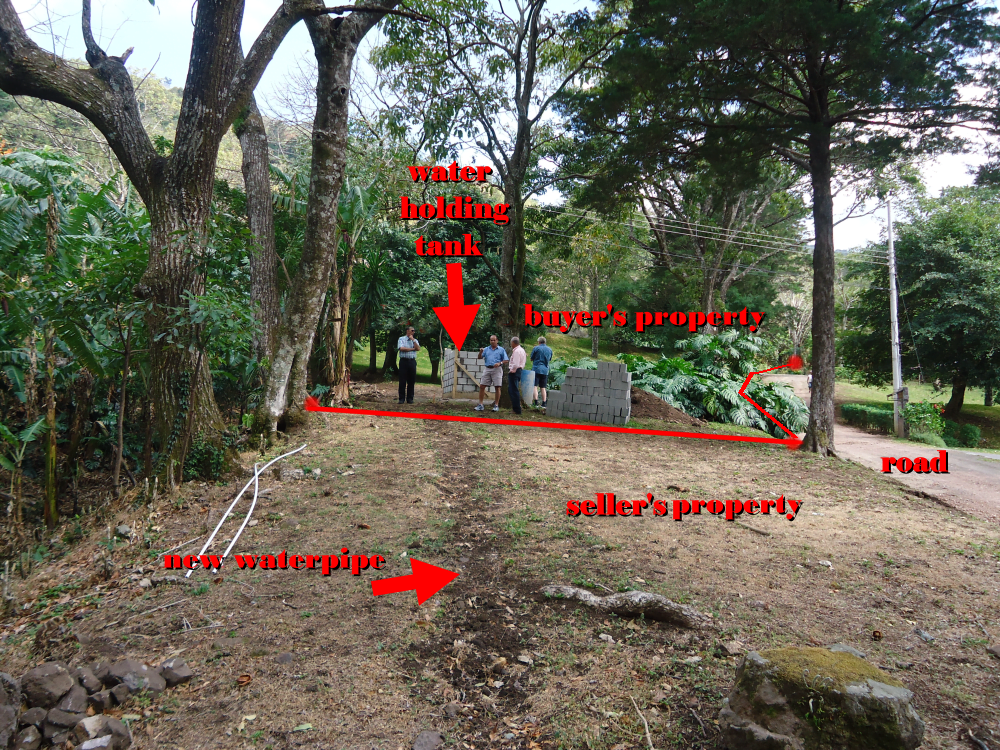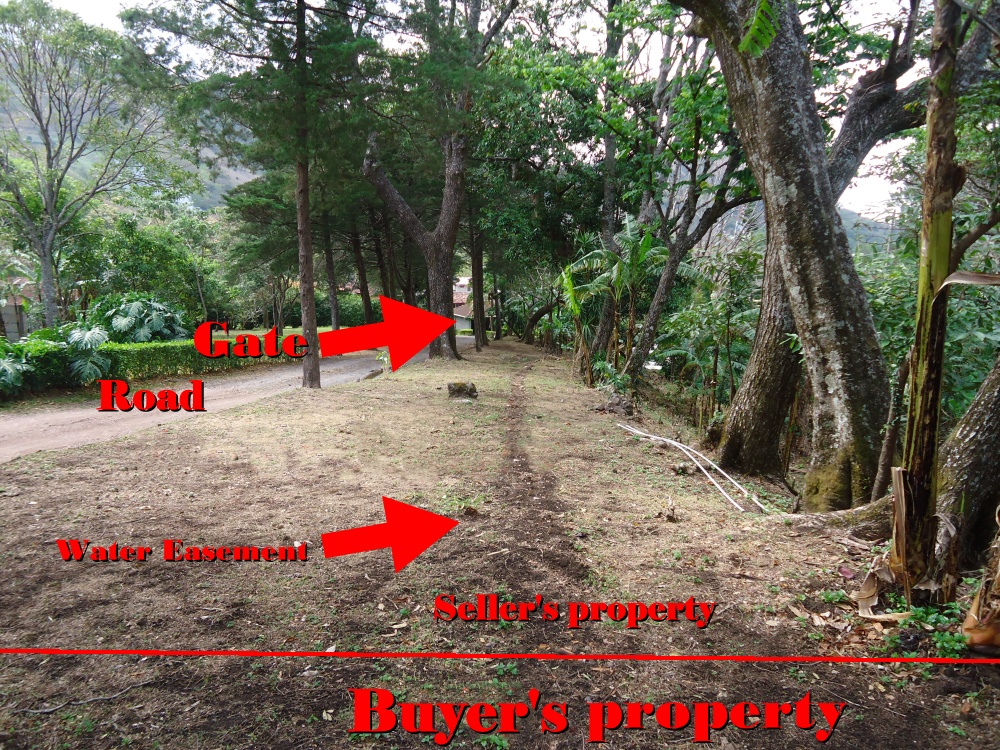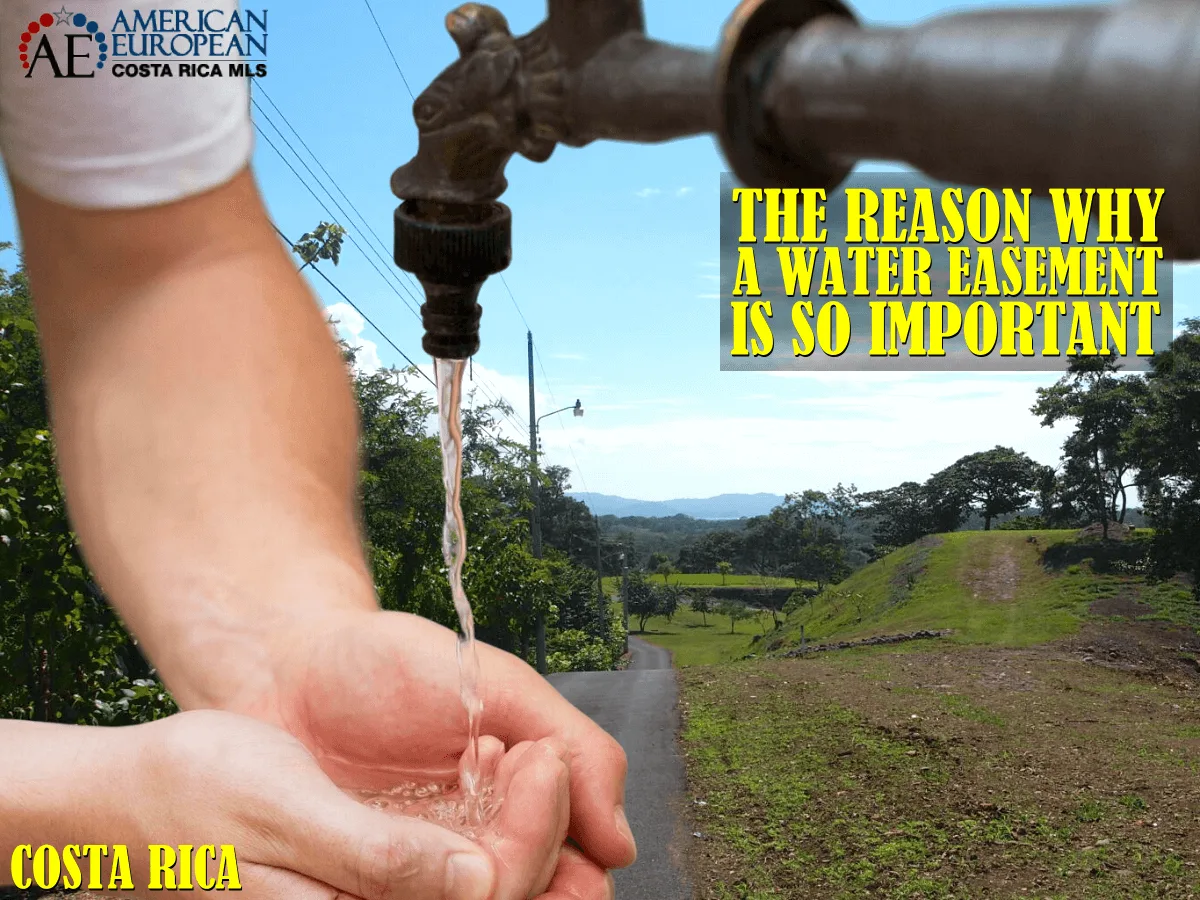Estimated Reading Time: 5 Minutes
Does the property you are purchasing have a water easement? When you buy a property in Costa Rica, you will want to verify if the property has access to water and if the water is legally connected. Do you know why?
In many countries, the water connection on a property is a straightforward matter; in Costa Rica, it can be or not. When you purchase a single-family property with road frontage, it is simply a matter of verifying whether the water meter is installed on the sidewalk. Or you can ask your home inspector to confirm the location.
However, before you decide to buy raw land in Costa Rica, obtain a letter from the local water company confirming that you can request a water meter for the property. Without this letter, you will not be able to obtain a building permit from the municipality.
When the property is part of a legally constituted condominium, the water meter is probably installed at the entrance of the community. In most condominiums, the properties don’t have direct access to road frontage.
If the water is community-managed and the cost is included in the HOA fees, you don’t have to worry about it.
When should you worry?
In a gated community
When the property is in a gated community that is not constituted as a legal condominium, things tend to be a bit different. Many gated communities in Costa Rica have a community well. The well normally pumps water to a holding tank and from there the water is distributed to the whole community. The well is usually located on a separate property if the zoning allows for subdividing a property that is just large enough to hold the well and the tank.

In such a case, a water easement should be constituted showing the exact location of the well and the tank, the access for maintenance, and the water pipe running from the well to the tank and from the tank through the community with connections to each property.
The topography
If the topography of the community is reasonably flat, it is common to run the water pipe under the road. In many communities, the road is a common area. In such cases, the water pipe should be registered as a separate water easement, unless the road is public. If the topography is reasonably steep, it is more cost-effective for the developer to run the water pipe through each property rather than using the road. In that case, a water easement will have to be constituted on each property title. Otherwise, the water easement will be located in the same place as the road.
A seller’s commitment
This takes me to a case we had, where one of our agents represented the buyer and another agent represented the seller. The seller owns a property with several home sites and has built four homes on the property. He and his family members occupy all properties. The same owner owns one rental unit, which is the one the client is buying. The water supply for all homes and home sites is provided through a single AyA water meter located on the street. From there, one water pipe leads to a water holding tank with a water pressure pump. From the tank, the water is then distributed to each house. That means the house we are selling doesn’t have its water supply and relies on the neighbors for water.
The seller commits to requesting a water connection directly with the AyA water company. He will build a pump house with a water holding tank and a pressure pump. Then, the seller did what most property owners would do: the wrong thing. He connected the water pipe from the water holding tank to the water meter on the street in a straight line, the shortest way possible.
An unnecessary shortcut
By taking the shortcut, the water pipe runs over a separate homesite owned by the same seller. One day, he will sell it, and now a water pipe runs over someone else’s property. This neighbor could dig it up, cut it off, or connect his swimming pool to it and have free water.

The seller could have run the water pipe under the road (a gravel road in this case). Then, he would have saved himself a lot of trouble. The water pipe had to be moved to the road to correct the problem. Or otherwise, constitute a water easement against the neighboring property.
Who to ask?
Your closing attorney will probably not catch an issue like this. That’s because closing attorneys do not visit the property they are closing on. Many real estate agents lack the expertise to identify problems like this. If you are unsure whether the property you are buying has a water easement issue, consult with your attorney. Learn also more about easements for access.
Now you have another reason to choose one of our affiliates as your buyer’s representative when buying property here. Contact us NOW.


















